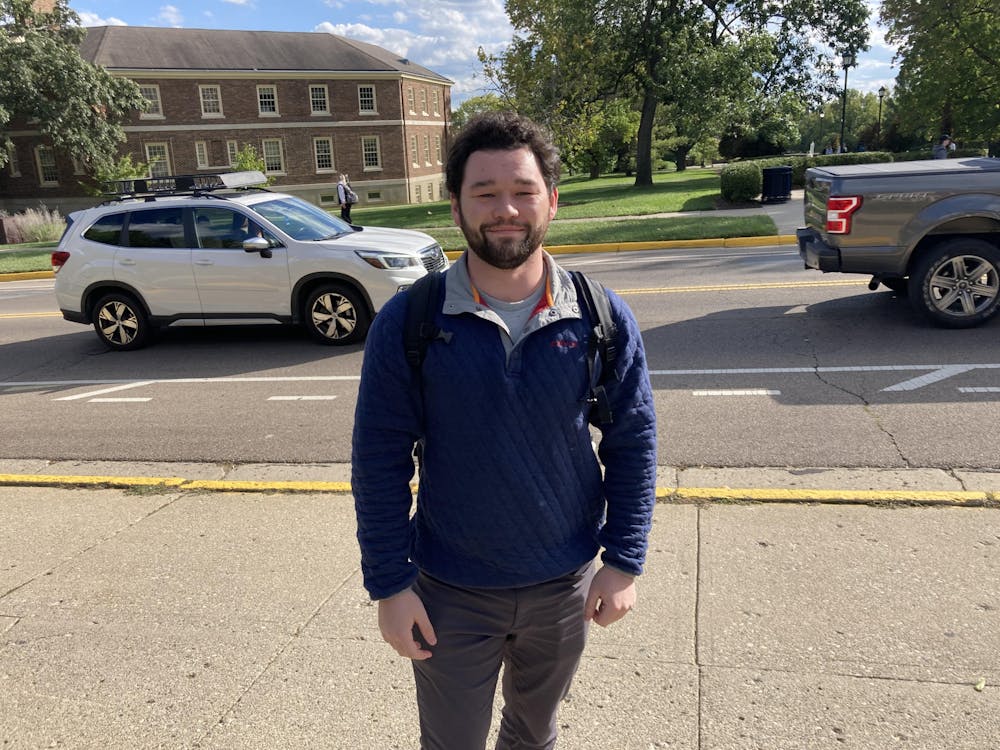As many Miami University students await emails telling them their midterm grades are posted, a select few bite their nails in anticipation of a different notification: whether their major will exist next semester.
In August, 18 majors were identified by the Office of Academic Affairs as low-enrolled. The department chairs are now tasked with restructuring those majors and have until December to do so.
While work has been evident behind the scenes, students in the at-risk programs aren’t working with the same details. Some students discovered the options given to their majors through professors, while others only heard about it from news sources.
Henry Testerman, a senior comparative religion, political science, and geography and sustainable development triple major, found out about the required changes through his job as a student assistant in the comparative religion department.
After learning about the incoming changes, Testerman weighed what future students would be missing if a program was integrated into another or broken down into a minor.
“Having a liberal arts education and having the humanities forces you to encounter new ideas, think about them and process them in a scholarly way,” Testerman said. “In a personal way, that can lead to your growth as a person and you changing and having a better college experience that leads to a better life.”
Testerman added comparative religion when he was looking for a complement for his political science degree. By chance, he took a religion class as part of the Miami Plan and found just what he was looking for.
“I was going to add a history major, but I didn't want to just keep taking the same classes that I've taken since high school,” Testerman said. “Then I took REL 376 which is global jihadism, and it was awesome.”
Testerman hasn’t heard anything about the future of comparative religion from outside the department. He said the small enrollment may be the reason why Miami isn’t saying anything about the upcoming changes.
“We’re eight students out of 16,000; we can’t put up much of a fight,” Testerman said.
Annika Kuretsky is a senior majoring in social justice studies, a program that brought her to Miami, and minoring in Latin American studies. She said students deserve to hear what is happening to their majors from a voice higher up than their professors.
“I think that the university owes it to their students to be transparent, and it's immensely frustrating that they have not chosen to do so,” Kuretsky said.
Enjoy what you're reading?
Signup for our newsletter
Kurtesky said that even though it’s been two weeks since the news broke, she does not expect an email until backlash makes its way into administrators’ offices. She added that a divide between students’ thoughts and the university’s values is partially to blame for both the change and the lack of communication.
“It is very evident that the administration does not necessarily care too much about what the students think,” Kurteky said. “Administration cares about money, point blank. And that's it.”
Alex Sargent, a senior critical race and ethnic studies major, said his major is a cornerstone of the culture at Miami, and cutting it would take away important aspects of his college experience from the university.

Alex Sargent is a senior critical race and ethnic studies major, which he believes is a cornerstone of culture at Miami.
“I've met a lot of people through this major, and I feel like the diversity aspect of it will most definitely go downhill,” Sargent said.
Sargent learned about the incoming changes through an article that was sent to him while he was at a networking event. Since then, he hasn’t heard anything about it from any source.
“I most definitely think professors should be talking to students about it,” Sargent said, “because we don’t know if this is going to be part of the curriculum or not.”




